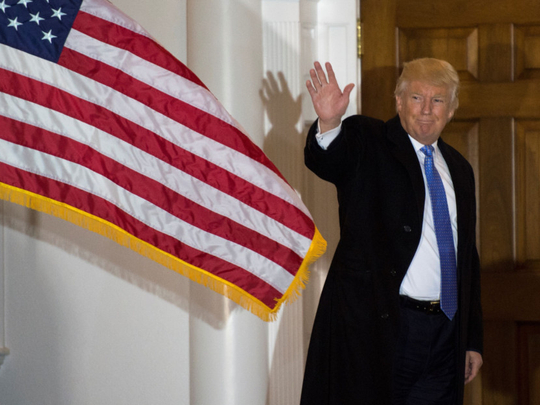
A report by the American Enterprise Institute’s Fred Kagan, titled ‘Understanding Russia today: Russia’s many revisions’, should be read by the incoming American administration and the United States Congress. Kagan explains:
“[Vladimir Putin] is redefining Russian identity in the terms the tsars used in the 19th Century-Russian Orthodoxy, nationalism and strong government (they called it autocracy, but he does not). He claims the right to renegotiate the terms of the bad deals Russia made with the post-Soviet states, by force if necessary. He cites the plight of ethnic Russians in the new republics as justification for eroding or even erasing the sovereignty of those states. He seeks to restore Russia to the position of global eminence it had as the Soviet Union by re-establishing its positions in the Middle East, Asia and Africa. He stokes conflict with the West to distract it from these endeavours even as he blames the West for inventing the hostility he has created.
“The West cannot appease its way out of this crypto-war. Putin requires conflict to justify his rule at home and his actions in the territory of the former Soviet Union. But western appeasement cannot address problems that spring from deep within Russia itself. Putin is encouraging Russians to believe that they must regain suzerainty over their former empire, that they must weaken and fragment the West, that they must cut the United States down to size, and that the West will oppose them implacably in all these endeavours. Appeasement can only draw him into further demands, since he cannot allow the hostility to wane.”
Kagan offers a measured take on America’s ability to reverse gains that US President Barack Obama allowed Russia to achieve with little penalty. (“The best course for the West in this regard is to refuse ever to recognise Russia’s annexation of Crimea no matter how permanent it seems to have become,” Kagan writes. “The US never recognised the Soviet Union’s seizure of the Baltic States in 1939, after all. Official government maps throughout the Cold War showed those states as part of the USSR with an asterisk explaining the refusal to recognize their re-conquest. That asterisk no doubt seemed a silly affectation to many. It helped facilitate the alacrity with which the Baltic States regained their independence as the Soviet system collapsed, however. It is a good model for the right approach to Crimea.”)
Russia’s challenge to the West goes beyond Ukraine and Georgia, certainly. Kagan cautions: “Putin’s international revisionism and his hopes of restoring Russia to a nearly co-equal status with the US rest on and feed upon the West’s fear of decline and failure. As long as the West doubts itself or, worse still, believes itself to be the author of the world’s woes and its own suffering, confronting Putin’s efforts to redraft the global order is a hopeless undertaking. The US in particular and its allies as well must recommit themselves to bearing the burden of global leadership, recognising that failure and responsibility for mistakes is a core part of that burden. Only then can they contest with Putin for the leadership role.”
The irony is that the man who comes to the Oval Office promising to make America great again has only underscored doubt and confusion in the West. Adopting Putin’s denials of hacking, rationalisation for Syria (Russia is fighting terrorists!) and contempt for democratic norms empowers our most formidable international foe. US President-elect Donald Trump’s insistence on keeping his businesses and flouting the emoluments clause also echoes Putin’s assertion that the West’s democracies are corrupt and hypocritical and therefore lack standing to attack his domestic corruption and human rights violations.
If Trump and his secretary of state are as savvy as they would have us believe, they will start cutting Putin down to size. That would necessitate frank talk about his meddling in democratic elections, his suppression of domestic dissent (and yes, the untimely deaths of journalists), his violation of international law (including abetting genocide in Syria) and his personal corruption. Trump should know that Putin respects only strength, so why not show some rather than doubling down on Obama’s fecklessness?
— Washington Post
Jennifer Rubin writes the Right Turn blog for the Washington Post, offering reported opinion from a conservative perspective.












